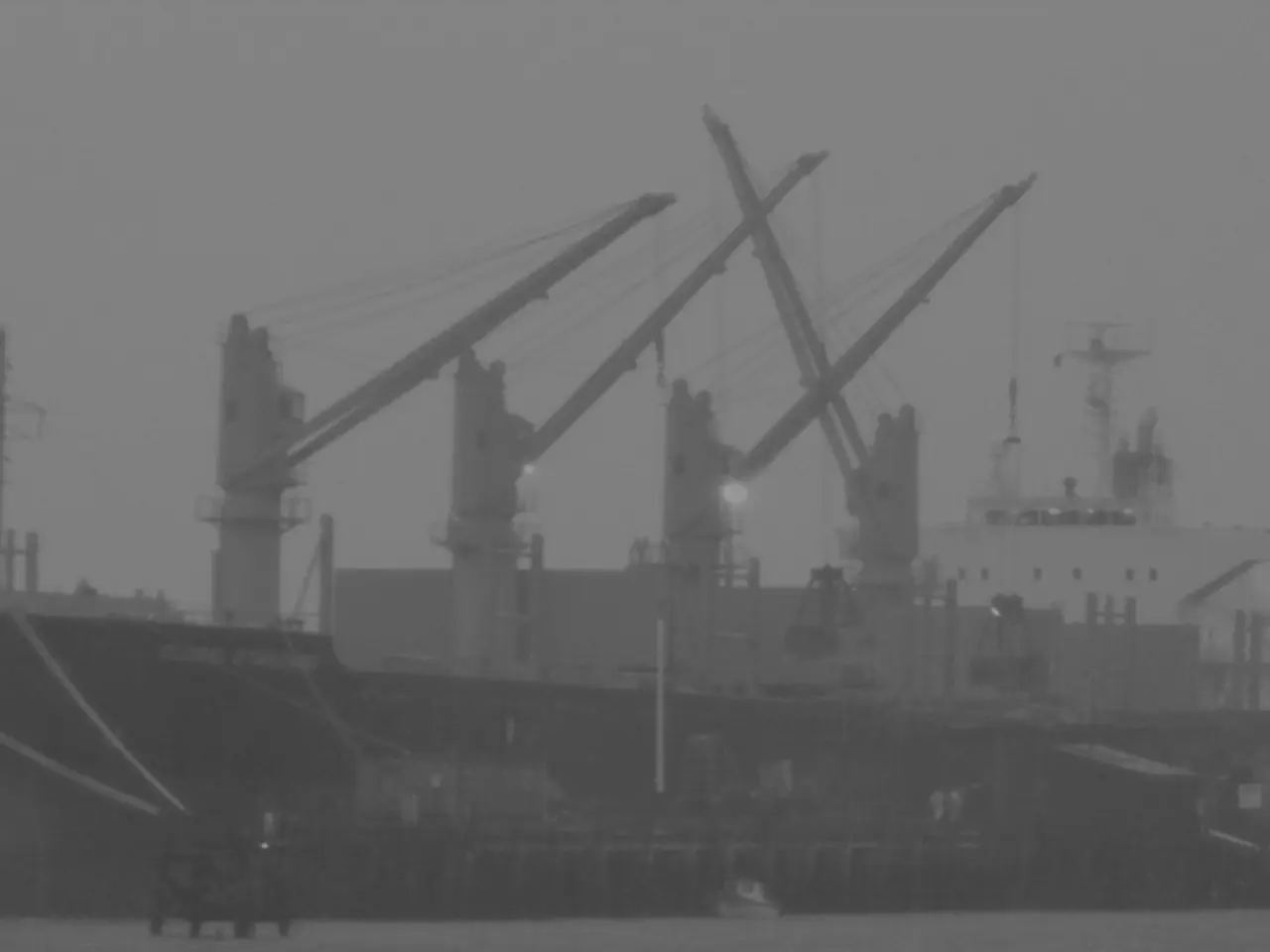Pakistan seeks approximately $700 million in freight income by augmenting its maritime fleet - as per the Maritime Ministry's plans.
Pakistan's Maritime Expansion:
Listen up, folks! Pakistan's state-owned shipping giant, the Pakistan National Shipping Corporation (PNSC), is gearing up for a major overhaul of its fleet. The plan? To acquire at least 24 additional vessels within the next three years, targeting an estimated $700 million in freight earnings.
As of now, Pakistan owns 10 ships, including five double-hull Aframax oil tankers and an equally impressive lineup of Supramax and Panamax bulk carriers. But the PNSC isn't satisfied with that. They're aiming high, targeting a colossal 52% share of the country's cargo volume and a notable 43% share by value within three years — that's a massive increase in market share!
This flurry of activity is part of Prime Minister Shehbaz Sharif's master plan to renovate and expand Pakistan's aging shipping fleet. The goal is to increase cargo capacity, improve fuel efficiency, and ensure compliance with International Maritime Organization standards, particularly those regulating carbon emissions and ballast water management.
The three-year plan was unveiled in a meeting attended by key figures in the maritime and logistics sectors in Islamabad. And if successful, this move could provide a much-needed boost to the PNSC, whose shipping business income dipped 18% to Rs25 billion ($88.5 million) between July-March 2022 as compared to the previous year.
So, what does this fleet expansion mean for Pakistan's maritime sector? Well, for starters, the PNSC will more than double its current fleet with the introduction of 13 vessels in the first year, followed by eight in the second and three in the third. By 2028, the total number of vessels in Pakistan's fleet is expected to hit 34.
But it's not just about numbers. The PNSC plans to deepen collaborations with local industries like Karachi Shipyard & Engineering Works for the manufacturing of modern cargo vessels, oil tankers, and container carriers. This partnership aims to create job opportunities, stimulate local supply chains, rejuvenate the shipbuilding sector, and position Pakistan as a significant regional maritime hub.
To finance this modernization without burdening the treasury, the government will leverage public-private partnerships, maritime leasing models, and tap into global green shipping funds. It's a smart move, considering Pakistan's aim to revive its debt-ridden economy and meet a tax revenue target of Rs14.3 trillion ($50 billion) in the next financial year starting July 2023.
Last week, the prime minister directed authorities to lease new vessels to grow the PNSC's fleet and reduce the annual foreign exchange burden on sea-based trade, currently estimated at a whopping $4 billion. By bolstering its maritime trade capacity and decreasing reliance on foreign shipping lines, Pakistan hopes to narrow its rapidly expanding trade deficit and preserve its foreign exchange reserves.
In a nutshell, Pakistan's shipping sector is about to experience a seismic shift, with the PNSC turning into a dominant regional maritime player. This transformation is poised to foster sustainability, innovation, and economic growth within the sector, setting the stage for a brighter future for Pakistan's maritime industry.
- The expansion of Pakistan's maritime sector extends beyond shipping, as the PNSC aims to collaborate with local industries like Karachi Shipyard & Engineering Works for the manufacturing of modern cargo vessels, oil tankers, and container carriers, fostering job opportunities and stimulating local supply chains.
- In line with the goal of reviving Pakistan's economy, the government plans to finance this modernization without overburdening the treasury, leveraging public-private partnerships, maritime leasing models, and tapping into global green shipping funds.
- The news of Pakistan's maritime expansion reached the global economy and general news sphere, highlighting Pakistan's ambition to become a significant regional maritime hub, bolstering its maritime trade capacity, and decreasing reliance on foreign shipping lines.




